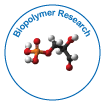Notre groupe organise plus de 3 000 séries de conférences Événements chaque année aux États-Unis, en Europe et en Europe. Asie avec le soutien de 1 000 autres Sociétés scientifiques et publie plus de 700 Open Access Revues qui contiennent plus de 50 000 personnalités éminentes, des scientifiques réputés en tant que membres du comité de rédaction.
Les revues en libre accès gagnent plus de lecteurs et de citations
700 revues et 15 000 000 de lecteurs Chaque revue attire plus de 25 000 lecteurs
Indexé dans
- Publons
Liens utiles
Revues en libre accès
Partager cette page
Abstrait
Self-Assembling Polymers: From Molecular Organization to Functional Materials
Gill T
Self-assembling polymers have emerged as a fascinating class of materials with the ability to spontaneously organize at the molecular level, leading to the formation of intricate structures and functional materials. This abstract provides an overview of the field, focusing on the journey from understanding the molecular organization principles to harnessing the potential of self-assembling polymers for the development of advanced functional materials. The abstract delves into the fundamental principles governing self-assembly, highlighting the role of non-covalent interactions and the influence of external factors such as solvent conditions and temperature. It explores the diverse range of structures that can be achieved, including nanoparticles, micelles, vesicles, fibers, and gels, and discusses the underlying mechanisms that drive their formation and stability. The potential applications of self-assembling polymers are vast and multidisciplinary. In the realm of nanotechnology, these materials have been utilized for the fabrication of nanoscale devices, sensors, and drug delivery systems. In the field of materials science, self-assembling polymers offer opportunities for the design of functional coatings, membranes, and responsive materials with tailored properties. Furthermore, their integration into the field of biomedicine has paved the way for advancements in tissue engineering, regenerative medicine, and controlled release of therapeutics. This abstract aims to provide a comprehensive overview of self-assembling polymers, emphasizing their role in molecular organization and their transformative potential in the development of functional materials. By understanding the fundamental principles and exploring their applications, researchers can unlock new avenues for innovation and contribute to the advancement of numerous fields, ranging from nanotechnology to biomedicine.
Revues par sujet
- Agriculture et Aquaculture
- Biochimie
- Chimie
- Food & Nutrition
- Génétique et biologie moléculaire
- Géologie et sciences de la Terre
- Immunologie et microbiologie
- Ingénierie
- La science des matériaux
- Le physique
- Science générale
- Sciences cliniques
- Sciences environnementales
- Sciences médicales
- Sciences pharmaceutiques
- Sciences sociales et politiques
- Sciences vétérinaires
- Soins infirmiers et soins de santé
Revues cliniques et médicales
- Allaitement
- Anesthésiologie
- Biologie moléculaire
- Cardiologie
- Chirurgie
- Dentisterie
- Dermatologie
- Diabète et endocrinologie
- Gastro-entérologie
- Immunologie
- La génétique
- Maladies infectieuses
- Médecine
- Microbiologie
- Neurologie
- Oncologie
- Ophtalmologie
- Pédiatrie
- Recherche clinique
- Soins de santé
- Toxicologie

 English
English  Spanish
Spanish  Chinese
Chinese  Russian
Russian  German
German  Japanese
Japanese  Portuguese
Portuguese  Hindi
Hindi